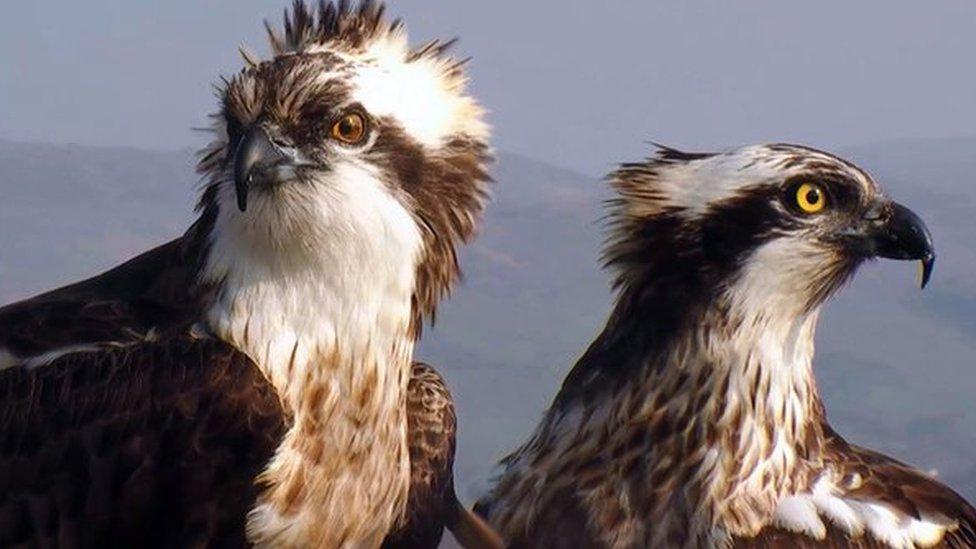Ospreys' nesting platform cut down in 'horrific act of vandalism'
- Published
CCTV captured the moment a vandal took a chainsaw to the platform
A platform with an osprey nest on top has been cut down with a chainsaw.
The protected bird of prey laid its first egg a day before the nest was felled at Llyn Brenig, which borders Conwy and Denbighshire, police said.
It has been branded a "horrific act of vandalism", external by the Brenig Osprey Project in a Facebook post.
North Wales Police Rural Crime Team said it suspected the culprits "possibly arrived by boat to chainsaw the platform" on the lake.
"Wildlife crimes always have a motive and we believe the person who did this had a strong motive to rid the area of ospreys and particularly the lake," it tweeted, external.
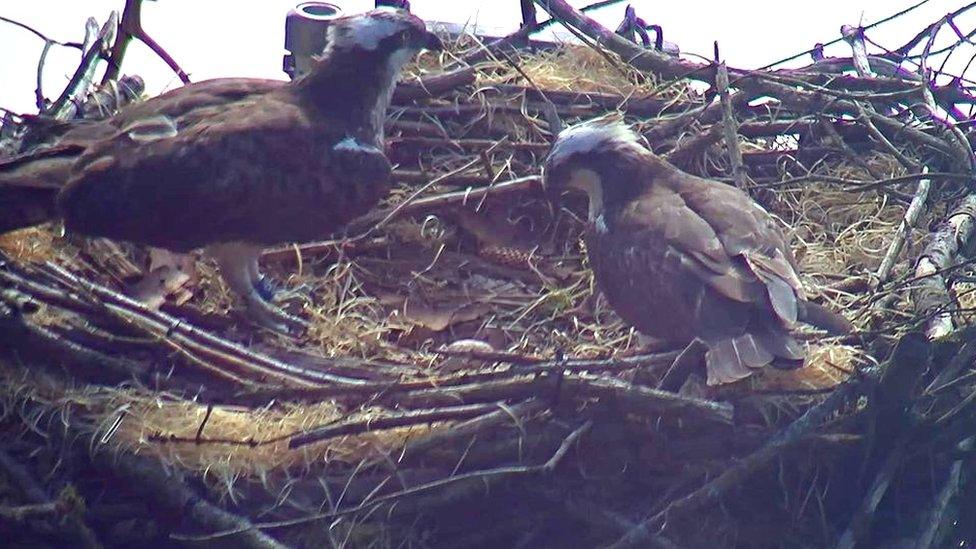
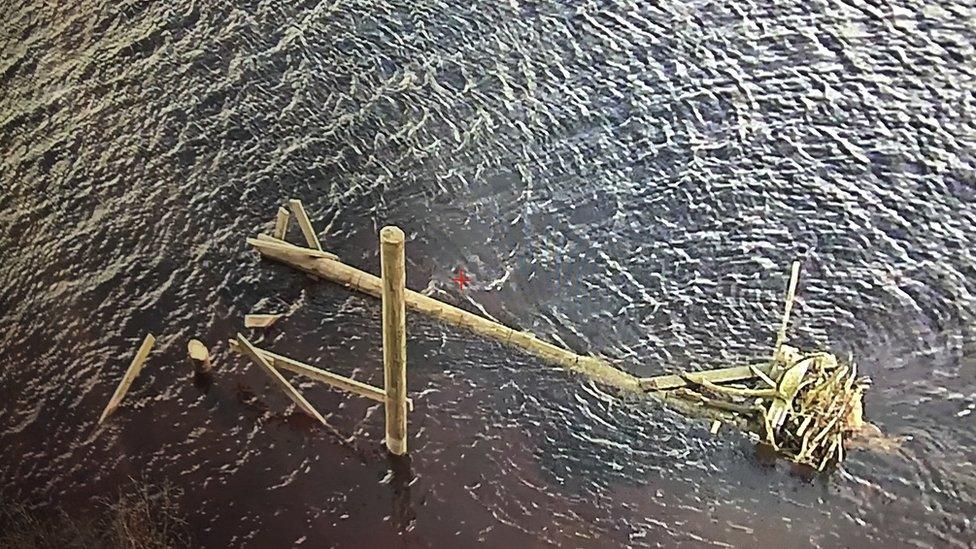
The nesting platform was found in the lake on Saturday morning
The birds and their eggs are protected under the Wildlife & Countryside Act, external which makes it an offence to interfere with them or their nest.
According to the RSPB, external, the female lays two or three eggs between one and three daily intervals in the second half of April, and incubates them for 37 days per egg.
Brenig Osprey Project is a partnership with Welsh Water and North Wales Wildlife Trust.
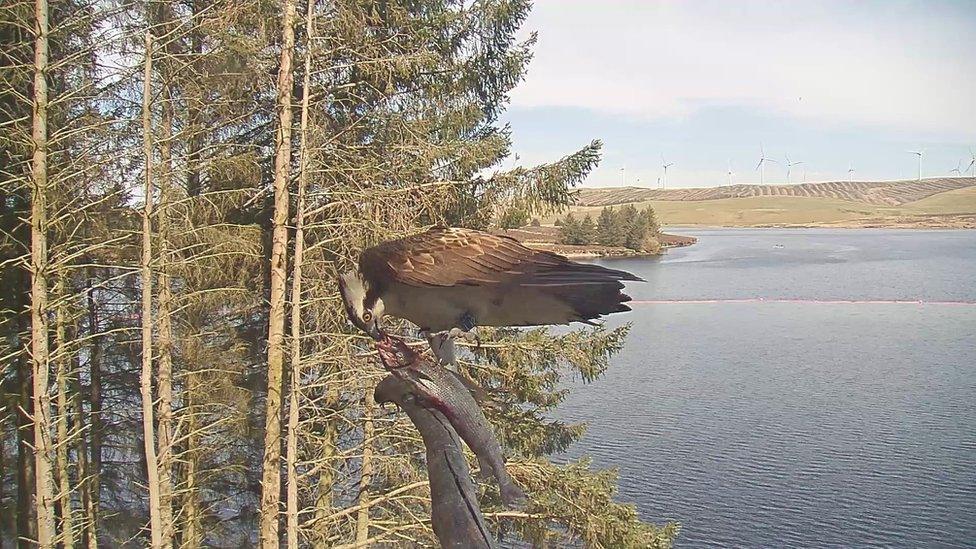
The osprey breeding support project began in 2013 at Llyn Brenig
The trust said: "Brenig Osprey Project partners woke up this morning to the worst possible news. Last night, at 21:42, someone took a chainsaw to the osprey nest and felled it.
"This is a fast-moving situation and we'll issue more news of the birds when we can."
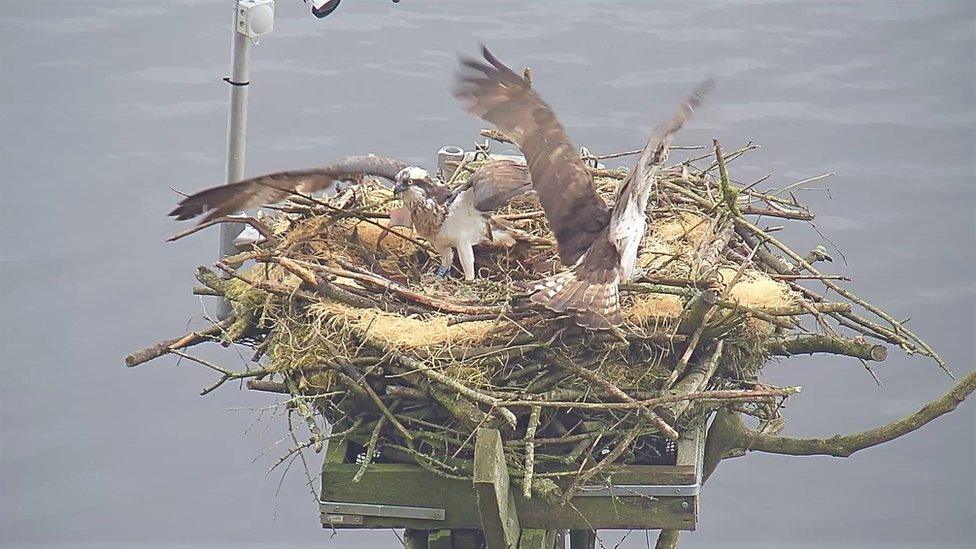
A pair of birds had been nesting on the platform
Welsh Water said the situation was "heartbreaking" and it was working with the police to help find those responsible.
In a tweet, external, BBC Springwatch presenter Iolo Williams called the incident "unbelievable" and labelled those involved "morons".
He told BBC Wales it was a "disaster" because there were only five breeding pairs in Wales.
However, he said it was hoped the breeding pair may lay more eggs at another nest platform.
Related topics
- Published29 April 2019
- Published17 April 2017
